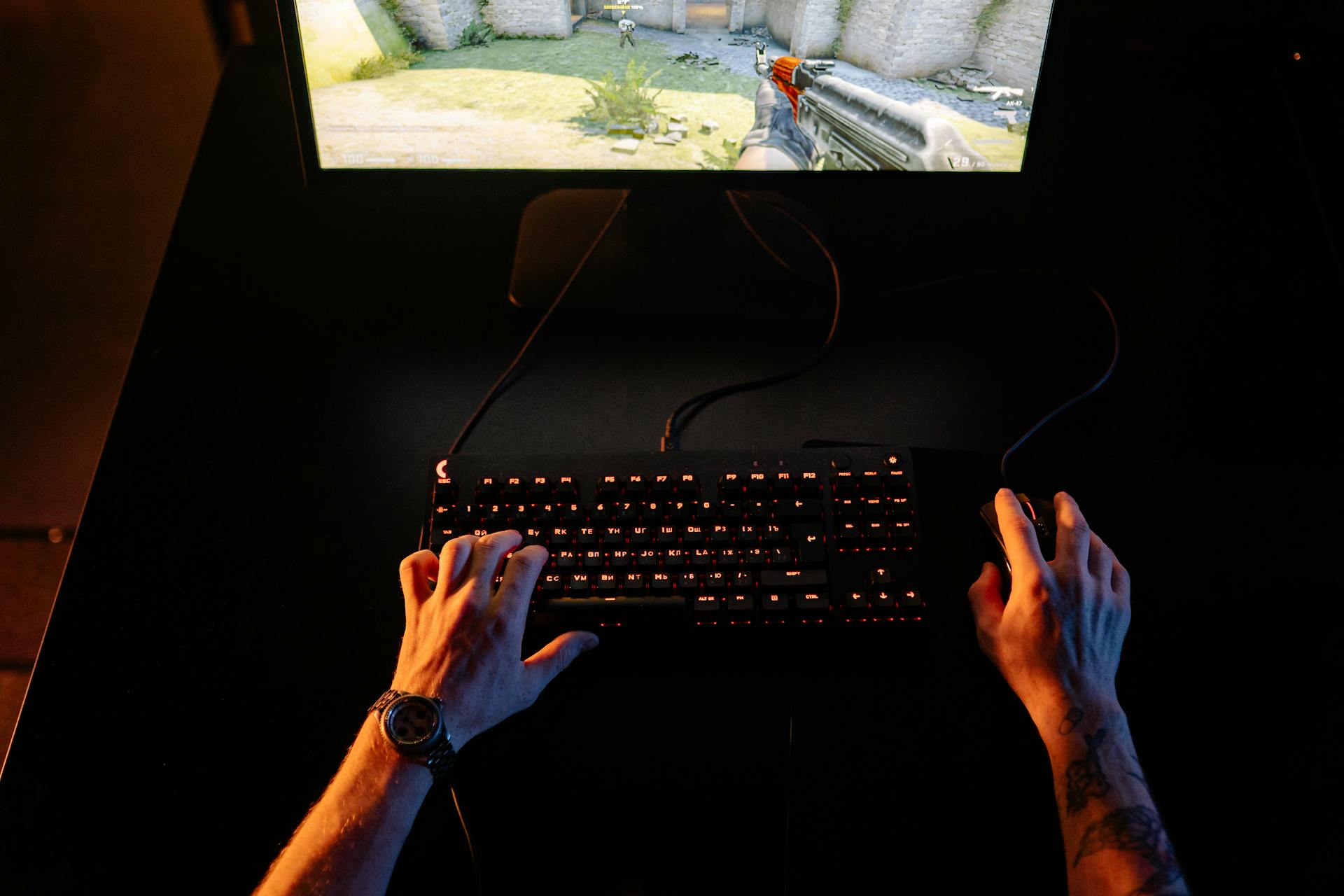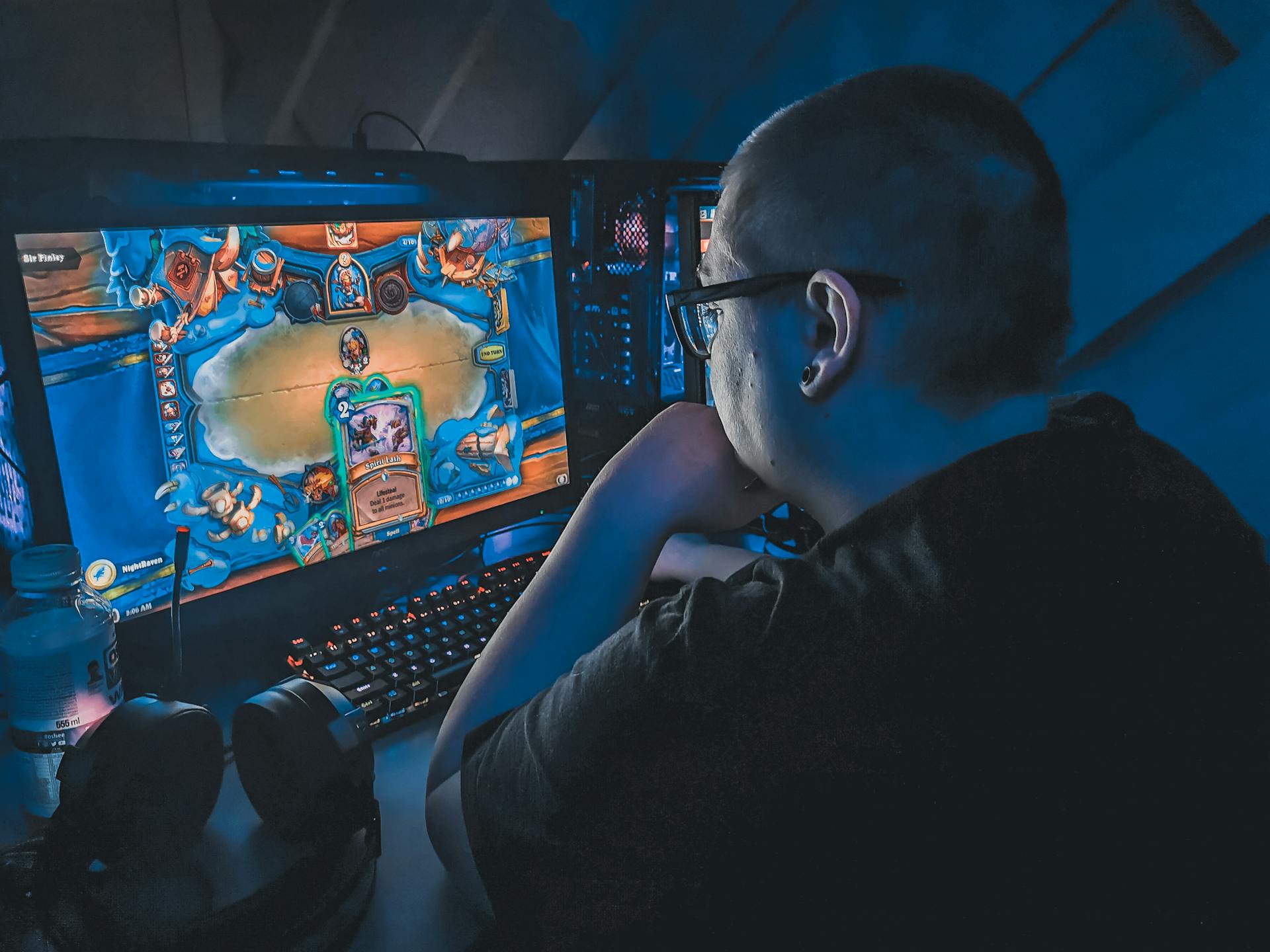
Why Transcreation Is Very Important in Indonesian Game Localization
When localizing a video game for Indonesia, direct translation is not enough. It's fine for legal documents, but gaming is about fun and immersion. A bad localization can be awkward, confusing, or even unplayable. That's where transcreation comes in.
But why is that so crucial? Keep reading to discover how transcreation takes the Indonesian game localization process to the next level.
Read more: Indonesian Game Localization: Boosting Engagement and Revenue
What Does Transcreation Mean in Indonesian Game Localization?
Have you ever played a game that just felt “off” in your language? That is what happens when a game is translated literally and does not consider cultural context. Transcreation, in Indonesian game localization, brings the game's dialogue, sense of humor, and expressions natural and appealing to native players. Transcreation differs from normal translation in that it focuses on meaning rather than word-to-word consistency. It also alters cultural references, humor, idioms, and even character lines to make them applicable.
Sometimes, this involves rephrasing entire lines to get the tone and feeling right. A joke that works in English might be absurd in Indonesian, so transcreators must find an equivalent that works as well. This step-by-step process enables transcreators to modify text, titles, and even game items if required. The goal is to ensure the original message but make the game appear as though it has been developed for Indonesian gamers. Transcreation-free localized games will sound unnatural and out of place, and that makes it harder for players to enjoy the game.
By breaking down language and cultural barriers, transcreation changes the perception of games. It is not just about making a game understandable but also about making it fun.
When and Where Is Transcreation Needed in Indonesian Game Localization?
Not all game content can be translated directly. Some elements require a creative approach to ensure they make sense to local players. But where exactly is transcreation needed? Let’s break it down.
1. Names of Characters
Renaming characters can have a tremendous effect on how the players connect with the game. Some names carry meanings or cultural connotations that might not transfer.
In the Indonesian situation, most Indonesian players prefer the original names or at least an English version. Instead of fully translating character names into Indonesian, most localizers employ English versions to offer familiarity. Take, for example, the game Overhit, which is a South Korean turn-based action RPG. One of its characters, 블로섬 (Beulloseom), would have been rendered as Mekar in Indonesian. The localization team opted for "Blossom" instead, keeping the sound but making it more palatable.
2. Names of Items and Skills
When localizing item and skill names, there are two main approaches: translating them or keeping them in their original form. The second option is often preferred, even by most translators. Why? Because many terms, like ‘gems’ and ‘potion of heal’ are already familiar to players. Direct translations, such as permata or ramuan penyembuh, may sound awkward and disrupt immersion. Another challenge is finding the right equivalent for specific terms. Take “rune”, for example. The word originally refers to ancient Germanic letters. In games, however, runes can appear as engraved magical stones, glowing crystals, or power-enhancing relics.
A transcreator must decide whether to keep the word “rune” or adapt it based on its appearance and function. If necessary, “runes” can be translated into terms like “batu jimat” or “kayu magis”, depending on the context. Alternatively, the transcreator can refer to the shape, appearance, or description (if available) to find the most suitable adaptation.
3. Cultural References
Many games include cultural elements that might not be familiar to Indonesian players. Directly translating these references can lead to confusion or loss of engagement. In Indonesian game localization, transcreators adapt these elements to something more relatable.
For example, a Japanese game might feature the Tanabata festival, where people write wishes on paper strips and hang them on bamboo trees. Indonesian players might not understand this tradition, so a transcreator could adapt it into something more familiar, like a Festival Lampion or Pekan Budaya. This way, the in-game event still feels immersive and meaningful while maintaining the original spirit of the festival.
Cultural references can also appear in dialogue, food, folklore, or even idioms. If a game character says, "A rolling stone gathers no moss," Indonesian players might not fully grasp the meaning. Instead, it could be adapted into a local proverb like "Air beriak tanda tak dalam" (Shallow water makes the most noise), which conveys a similar message.
4. Character Limits and UI Constraints
Game interfaces have limited space, and languages vary in word length. Indonesian sentences are often longer than English ones, which can cause issues in UI elements like menus, subtitles, or item descriptions. Transcreators must shorten text while keeping the meaning intact.
For instance, an English phrase like "Attack Power Boost" could become "Peningkatan Kekuatan Serangan" in a literal translation. However, this phrase is too long for a button or status bar in the game.
This challenge is even more critical in mobile games, where screen space is extremely limited. But a well-executed transcreation ensures that the UI remains user-friendly and visually appealing for Indonesian players.
5. Character Backstories and Game Descriptions
Character backstories and game descriptions add depth to a game’s world. While they don't affect gameplay mechanics, they enrich the overall experience. In Indonesian game localization, transcreation plays a key role in making these narratives more immersive. A direct translation might convey basic facts but miss the emotional tone or cultural nuances. Transcreators capture the story’s essence, ensuring players connect with the characters.
Read more: Discover 5 Games with Indonesian Language Localization
How Transcreation Enhances the Gaming Experience for Indonesian Players

The following are several ways that transcreation in game localization can improve the playing experience, in this case for Indonesian players:
1. Creating a Seamless Narrative Flow
A well-localized game should feel like it was originally written in the target language. Direct translations often sound awkward or lose meaning. Transcreation adjusts dialogue, item names, and story elements to maintain coherence. This makes character interactions and plot twists more impactful, allowing Indonesian players to enjoy a smooth and engaging experience.
2. Maintaining Emotional Depth
Games are not just about mechanics; they tell stories and evoke emotions. If a joke, pun, or dramatic scene doesn't translate well, transcreation finds an equivalent that resonates with Indonesian players. Whether it's humor, tragedy, or suspense, the goal is to deliver the same emotional weight as the original.
3. Adapting to Cultural Sensitivities
Certain themes or symbols may not be well-received in Indonesia due to cultural or regulatory reasons. Transcreation modifies these elements while preserving the game's intent. Whether adjusting character outfits, renaming locations, or tweaking dialogue, these changes ensure that the game remains respectful and accessible.
4. Enhancing Immersion Through Familiarity
Using commonly understood terms and references helps players feel at home in the game world. In Indonesian game localization, transcreation ensures that myths, idioms, and historical elements align with local knowledge. This makes the story more immersive, allowing players to engage with the game on a deeper level.
Conclusion
Overall, transcreation is a key component of Indonesian game localization that makes the gaming process smooth, appealing, and contextual. Language transition, cultural reference, humor, and even limitations of UI in making games appealing and natural for local players all come through in transcreation.
Without transcreation, games that are directly translated may sound unnatural, confusing, or disconnected from their consumers. To be successful in the Indonesian market, transcreation is a necessity.
Wondering about game localization methods and how transcreation will increase your game's marketability? Stop by Digital-Trans Asia for informative articles and news about game localization!
Ready to boost your game’s success in Indonesia with expert transcreation? Visit https://digital-trans.asia/ to learn more about our services. Contact us today to get started!